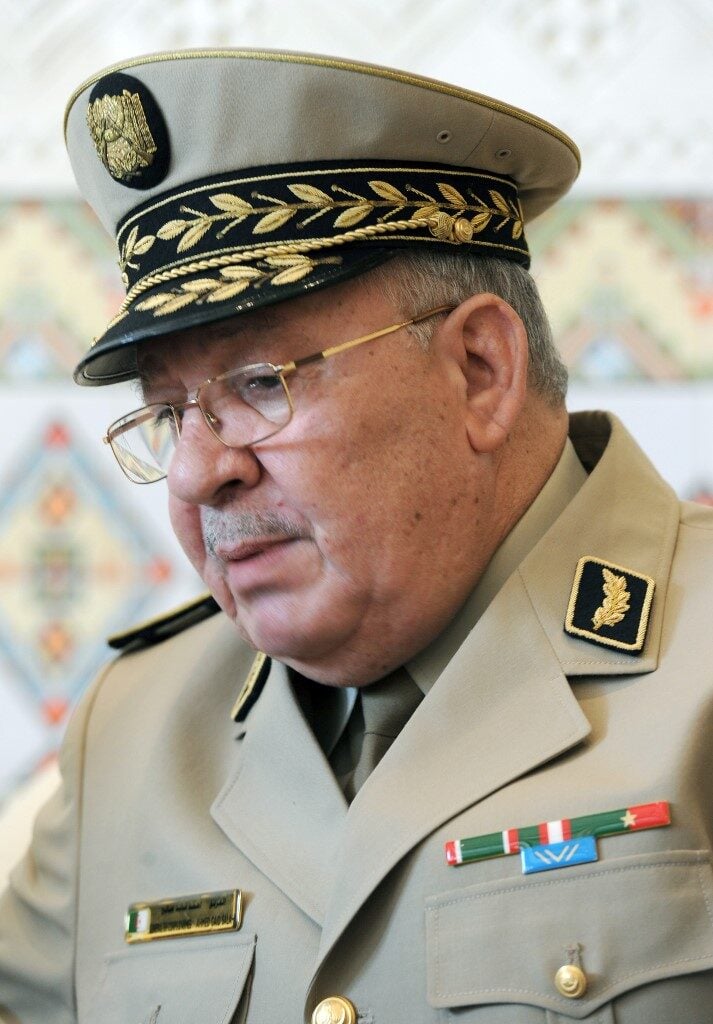Algerian President Abdelaziz Bouteflika announced his official resignation on 2 April 2019, amid mass protests against his continued leadership. Shortly after, his previously staunch ally General Ahmed Gaid Salah arrested General Mohamed Mediene (aka General Toufik), former head of the intelligence services, and Said Bouteflika, the president’s brother, on conspiracy-related charges.
He has confirmed repeatedly that he has abided by the constitution and that the military establishment will not depart from its constitutional duties in supporting the protest movement. He has also claimed that there are no personal political ambitions behind this support. The last comment was made in response to rumours that he is trying to emulate Egypt’s President Abdel Fattah el-Sisi, who came to power in a military-led coup, with support from the United Arab Emirates, which is seeking to maintain influence in the region.
So will Gaid Salah be an exception to the rule or will he emerge as another power-hungry Arab general?
He was born on 13 January 1940 in the town of Ain Yagout in south-east Algeria. He joined the nationalist movement at the age of 17 and started his military career as a fighter in the National Liberation Army against France. He stayed in the army after independence in 1962, participating in the war of attrition in 1968 as part of the Middle East military campaign in Egypt.

Like many commanders of the National Liberation Army, he attended training courses in the former Soviet Union. After graduating from the Vystrel Military Academy outside Moscow, he returned to Algeria and began rising through the ranks. He was promoted to general in July 1993, and in 1994, he was appointed commander of the ground forces, one of the most powerful army units that played a major role in confronting armed terrorist groups during the civil war (1991-2002).
His military career nearly came to a premature end twice. The first time was in 1980, when Chadli Bendjedid was in power. Gaid Salah was about to be forced into early retirement but was rescued by generals Khaled Nezzar and Mohamed Lamari. The second time was in 2003, when his superiors also tried to pressure him to retire as part of the army’s renewal campaign and rearrangement of loyalties. Lamari, then army chief of staff, prepared a draft list of officers of different ranks for retirement, and Gaid Salah was on the list. According to the French-language magazine Jeune Afrique, the latter received a call from Bouteflika, who had become president in 1999, asking, “Do you want to leave us?”
He was eventually allowed to stay on as commander of the ground forces, to be appointed later in 2004 as chief of staff of the People’s National Army, succeeding Lamari, who paid the price for his opposition to Bouteflika’s second presidential term. Gaid Salah showed his gratitude by becoming Bouteflika most loyal ally.
In July 2006, he was promoted to the rank of general, and in September 2013, he was appointed deputy minister of national defence. According to observers, the post was a reward for his ongoing support for Bouteflika, notably after General Toufik opposed Bouteflika’s candidacy for a fourth term in 2014 and was subsequently ousted in 2015, also with Gaid Salah’s support.
Gaid Salah also stood up to those who wanted to overthrow Bouteflika after a stroke put him in a wheelchair. Moreover, it was Gaid Salah who guaranteed Bouteflika’s fourth presidential term in 2014 and ensured his stay in power despite growing calls not to allow him to run again because of his poor health.
Prior to the 2019 elections, which were planned for 4 July and would have seen Bouteflika run for a fifth term, Gaid Salah tightened his grip on the army, removing opponents among commanders of various forces and military districts. He also managed to seize the National Security Command by overthrowing its director, Abdelghani Hamel.
This absolute loyalty to Bouteflika continued until 22 February, when mass protests against Bouteflika’s rule first broke out. At that stage, Gaid Salah opposed the protests, describing those who took part as misled. He also warned that certain parties wanted to take the country back to the years of pain and suffering in the 1990s that claimed more than 200,000 lives.
However, the protest movement was so strong and determined and included all segments and classes of society that Gaid Salah changed his position. He said in an official speech on 26 March that he had sided with the people. He called for their demand that the president step down be heard and that article 102 of the constitution be applied, declaring the presidential post vacant.
In short, Gaid Salah abandoned Bouteflika after he found out that the latter’s political career was over and that remaining loyal to him would lead to his own departure. Since then, Gaid Salah has been considered the regime’s most powerful figure and, as the army’s chief of staff, responsible for setting the course of his country’s future.


